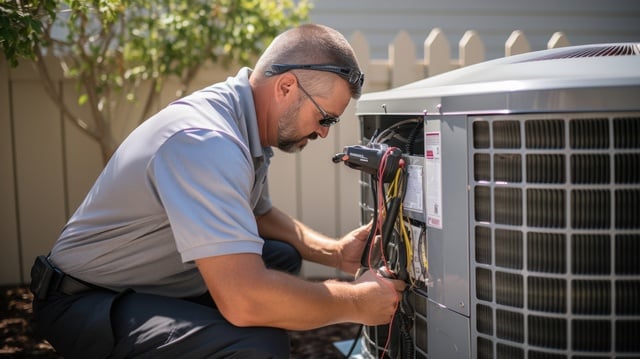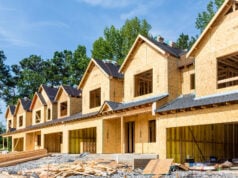
The Basics of Home Heating Systems
Home heating systems are essential for comfort and safety during the colder months, but the vast number of options and technical intricacies can be overwhelming. Most residences rely on different heating methods, such as furnaces, heat pumps, or boilers, each with its own unique components—including heat exchangers, burners, blowers, thermostats, and filters. That’s why regular attention is just as crucial as knowing when to seek out expert furnace repair in Tucson, AZ, especially as winter approaches.
Ignoring your heating system may lead to decreased energy efficiency and unexpected breakdowns. Staying proactive with cleaning, filter replacement, and system checks is an essential aspect of extending the lifespan of your investment. Consistent care will save you money and ensure your home environment remains healthy and comfortable.
Signs Your Heating System Needs Attention
Common Warning Sounds and Malfunctions
Listen carefully to your heating system for unfamiliar sounds like banging, squealing, or grinding. These typically point to worn-out parts or airflow issues. You might also notice short cycling, where the system repeatedly turns on and off, signaling a possible thermostat or sensor problem.
Indicators of Inefficient Operation
If your home feels persistently cold despite the heater running, or there are drastic temperature variations from room to room, it’s time for a thorough checkup. Unusually high energy bills, slow heating response, or the constant need to adjust the thermostat are clear indicators your system isn’t operating at peak efficiency.
Safety and Air Quality Red Flags
Poor air quality, visible dust accumulation, increased allergies, or a persistent burning smell can point to clogged filters or more serious dangers like cracked heat exchangers. When in doubt, seek professional help to protect your family from carbon monoxide leaks or system failures.
Furnace Issues: Troubleshooting and Solutions
Pilot Light and Ignition Problems
One of the most common furnace complaints is a pilot light that won’t stay lit, or an electronic ignition that fails to spark. First, check for drafts and confirm the furnace’s power supply. If problems persist, a professional may need to address dirty sensors or failed components.
Uneven Heating Throughout the Home
Cold rooms and uneven heating often stem from clogged filters, obstructed vents, or faulty blowers. Start by replacing air filters and making sure all vents are open. If the problem remains, ductwork may require cleaning or inspection.
Heat Pump Problems and Quick Fixes
Heat Pump Not Turning On
Start by checking the power supply, circuit breakers, and thermostat settings. Ensure your system isn’t in cooling mode and that wires are undamaged. If the pump still won’t activate, a professional assessment is needed.
Issues with Airflow and Refrigerant
Weak airflow can indicate a dirty filter, blocked registers, or refrigerant leaks. Replace or clean air filters frequently, and ensure outdoor units are debris-free. Refrigerant issues almost always require a licensed technician.
Thermostat Problems That Mimic System Failures
Symptoms Caused by Faulty Thermostats
Unresponsive controls, incorrect temperature readings, and erratic cycling of your system may stem from thermostat malfunctions, leading many homeowners to mistakenly suspect their entire system is broken.
Resetting or Reprogramming for Better Performance
If you’re experiencing problems, reset your thermostat to factory settings or replace the batteries. Reprogramming it according to seasonal needs can resolve irregular heating cycles.
Preventing Future Problems with Routine Maintenance
Cleaning, Replacing Filters, and Annual Inspections
Schedule annual professional inspections, and don’t overlook simple tasks like filter changes, cleaning air registers, and checking exhaust vents. These efforts will reduce the strain on your system, lower energy bills, and minimize health risks.
The Value of Professional Preventive Care
According to the U.S. Department of Energy’s maintenance guidance, professional preventive care catches minor issues before they escalate, safeguarding efficiency and family health.
When It’s Time to Replace Instead of Repair
Identifying Signs of End-Of-Life for Heating Equipment
If your system is over 15-20 years old, requires frequent repairs, or can no longer maintain consistent temperatures, replacement may be more cost-effective than repair. New systems feature improved reliability, safety, and energy savings.
Cost Considerations and Energy Efficiency
While a new heating system is a substantial investment, modern units are more energy efficient and can significantly reduce heating bills. Before making a decision, compare repair costs versus long-term savings.
Staying Warm and Safe All Season Long
Recognizing the early warning signs of heating system failure, addressing minor issues promptly, and scheduling regular maintenance are all essential to comfortable, safe living. When problems arise, consult professionals for timely and expert guidance—ensuring your investment keeps you and your family warm, safe, and worry-free through the coldest months.
Proactive care and a keen eye for system efficiency can save money, energy, and stress. By understanding your heating system and partnering with trusted experts when needed, you’ll enjoy reliable warmth all winter long.
Disclaimer
The information contained in South Florida Reporter is for general information purposes only.
The South Florida Reporter assumes no responsibility for errors or omissions in the contents of the Service.
In no event shall the South Florida Reporter be liable for any special, direct, indirect, consequential, or incidental damages or any damages whatsoever, whether in an action of contract, negligence or other tort, arising out of or in connection with the use of the Service or the contents of the Service.
The Company reserves the right to make additions, deletions, or modifications to the contents of the Service at any time without prior notice.
The Company does not warrant that the Service is free of viruses or other harmful components












